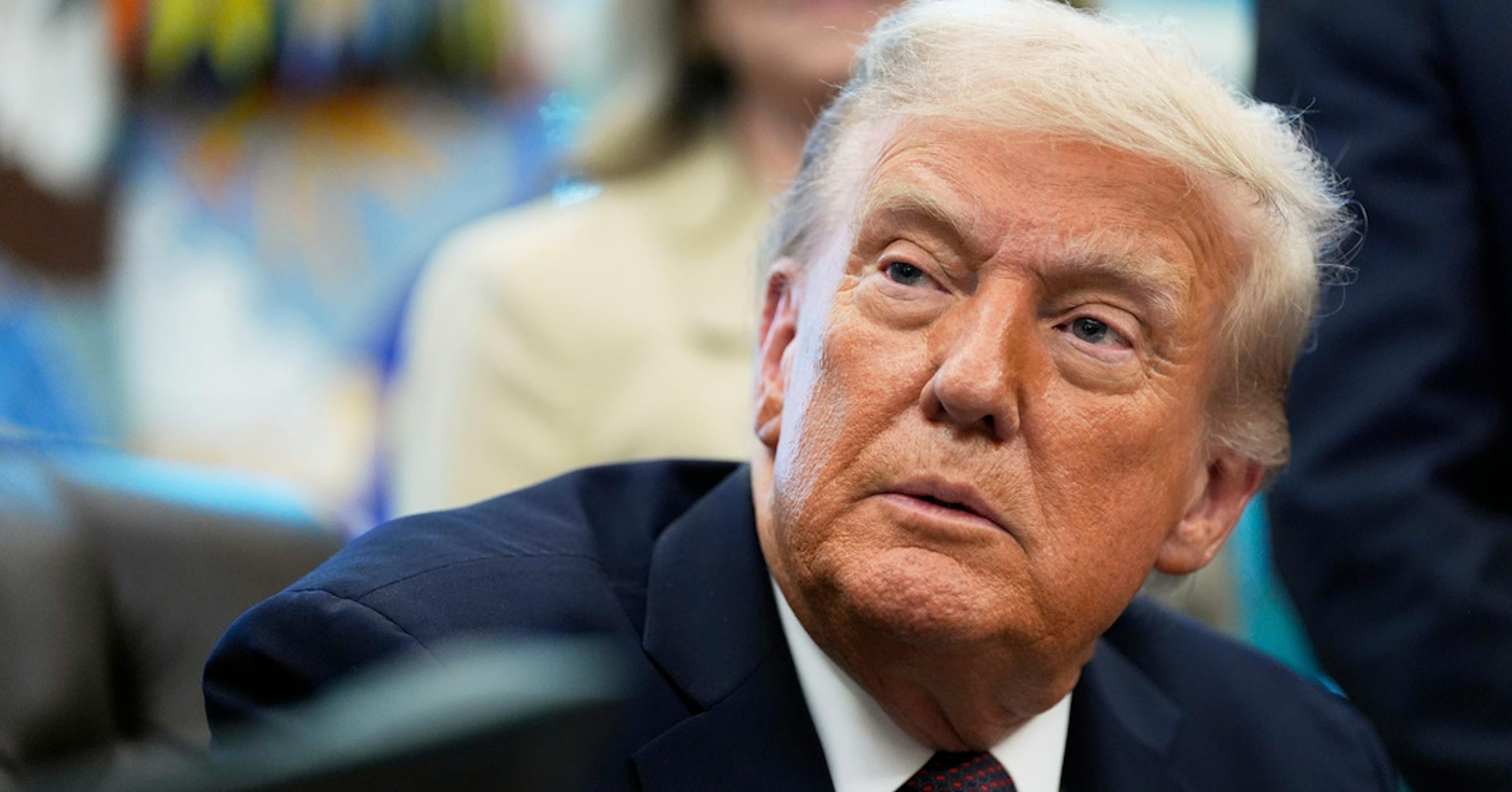
The Trump administration would have broad authority to make decisions about spending if the government shuts down next week — and it would also have broad authority to make those decisions if the government stays open under a long-term funding extension.
Congress has operated under such an extension for months and is trying to pass another short-term extension, known as a continuing resolution, or CR, before federal funding laws expire. Without action, a shutdown would start just after midnight on Oct. 1.
Under an extension of funding, the administration has far greater leeway to decide how to spend federal money than it does under normal operations. If the government does shut down, Trump and the White House Office of Management and Budget would have the power to decide which agencies and offices stay open and which would go offline until the deadlock is resolved.
That has lawmakers, especially Democrats, feeling caught in a no-win proposition as the shutdown deadline approaches. Even if Congress approves new full-year funding laws — which isn’t possible before the deadline — the White House says it has the power to block funding or cancel programs.
“They’ve already grabbed that power,” said Rep. Madeleine Dean (D-Pennsylvania), a member of the House Appropriations Committee. “The constitutional Article I power has been sucked out of our committee because of the acquiescence of the Republican majority. So the president and his administration are already illegally claiming power and authority.”
Democrats faced a similar dilemma earlier this year. In March, a group of Senate Democrats joined with Republicans to allow passage of a CR covering six months of government funding, worried that a shutdown would empower OMB Director Russell Vought and Elon Musk, then the head of the cost-cutting U.S. DOGE Service, to eliminate massive swaths of federal agencies.
Regular appropriations, or spending, laws come with detailed reports, agreed upon by both parties in Congress, that show how much money should go to which program. Long-term CRs often drop those reports — leaving unspecified funding in each agency that can be directed as the administration wishes.
The long-term funding extension approved in March enabled the administration to move money out of programs that had previously been designated by Congress and into other areas — including eliminating a suicide prevention hotline for LGBTQ youth, directing additional Army Corps of Engineers funding to Republican states, and rerouting Education Department funding from teacher grants, early-childhood education and colleges primarily educating minority students to charter schools, civics programs, tribal colleges and historically Black colleges and universities.
In the past, presidents of both parties have spent money as directed in the reports, even if they are not legally binding in a continuing resolution, because they do not want to disrupt future negotiations, budget experts say.
“It’s not law, but it’s long-settled practice that the executive branch respects report language. This administration is in a different place,” said Charles Kieffer, who previously worked in the OMB through both Republican and Democratic administrations and for Democrats on the Senate Appropriations Committee.
The extra leeway the administration has under a CR would end whenever full-year spending bills are enacted; the measure Congress is considering now would extend spending only until Nov. 21. But some Republicans are suggesting Congress should continue to fund the government by extending current funding well past November into next fall, skipping this year’s appropriations process entirely. And some Democrats fear that the longer they allow short-term funding extensions, the closer they are to that becoming reality.
“I think it might become more obvious [by November] that the Democrats are not going to negotiate in good faith, and at that point we can’t just have repeated threats of government shutdown,” said Rep. Andy Harris (R-Maryland), chair of the House Freedom Caucus. “I think we just move it into next December 1.”
If Senate Democrats block passage of a short-term funding extension and force a shutdown next week, Trump and his budget office have the power to determine which federal functions and staff are necessary to protect life and government property. Transportation Security Administration airport screeners typically remain on the job — unpaid — for example, while bureaucrats from the EPA would be sent home on furlough.
The administration has some latitude to decide which agencies are indeed “essential” during a shutdown, which could lead the White House to keep some top priorities online even if they aren’t usually able to operate without funding, said David Super, a law professor at Georgetown University.
“Some administrations want to shut down as much stuff as they can, to increase pressure on Congress to end the shutdown, and that could end up being the policy of this administration, where they refuse to keep open some things that clearly are necessary for the protection of human life and property,” Super said. “They also could try to be selective, which seems to be what the Democrats are concerned about, and be very liberal with the programs they like and very stingy with the programs they don’t like.”
It’s still not clear what parts of the government would close in a shutdown. The White House budget office traditionally publicly posts agency staffing plans as the deadline nears. The Trump administration has not yet shared them on its website this time, and OMB spokespeople did not reply to requests for comment about how much of the government would remain operational if funding lapses.
Republicans, though, say they’re offering exactly what Democrats have demanded in past shutdown fights: a “clean” CR that only extends current funding without other policies attached. The GOP bill would also add tens of millions of dollars for security for lawmakers, Supreme Court justices and executive branch officials after Charlie Kirk’s shooting.
Both chambers of Congress left Washington this week for Rosh Hashanah. The House isn’t due to return until after the shutdown deadline, and Senate Majority Leader John Thune (R-South Dakota) has teed up another vote on extending spending for Monday evening — just before funding expires. Thune has said he will not consider adding the ACA subsidies to a short-term extension.
“The world is totally changed from March,” Schumer said Friday. “People have seen the damage the Republicans are doing. The reconciliation bill just decimated health care. Tariffs are now in effect and raising people’s costs. Their costs are going up left and right.”
“We have seen the unlawfulness of the Trump administration after March, with the rescissions, with the impoundments, with the pocket rescissions. So, the world’s a different place right now,” he added.
President Donald Trump castigated the United Nations as a feckless institution in a speech to the world body on Tuesday, praising the turn America has taken under his leadership while warning Europe will be ruined if it doesn’t turn away from a ”double-tailed monster” of ill-conceived migration and green energy policies.



